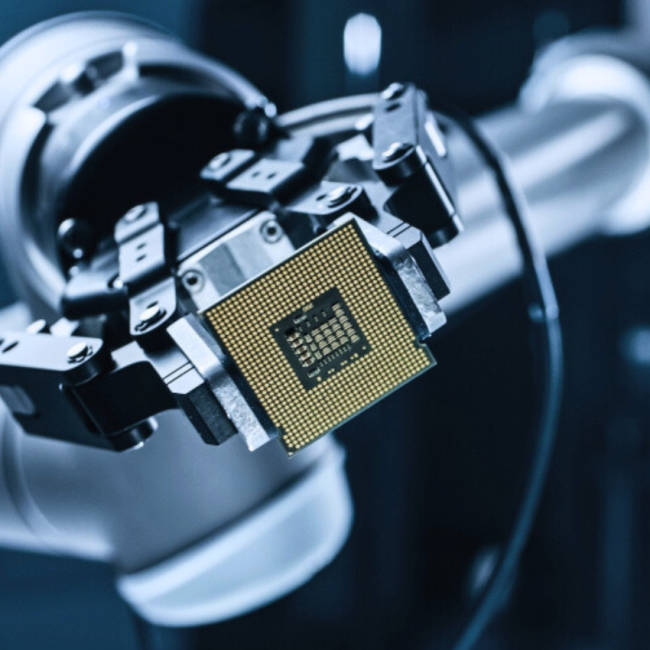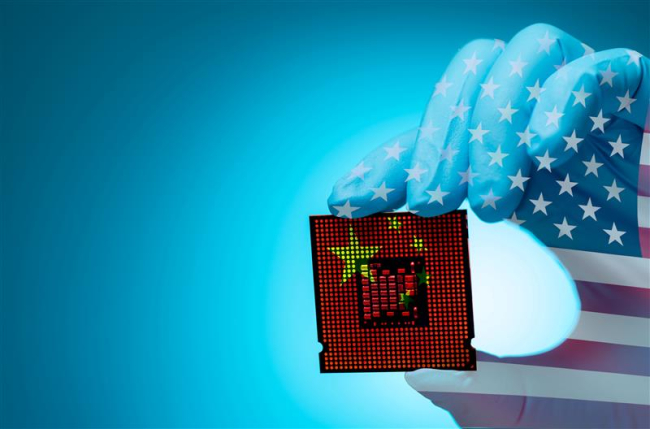5G and the US-China Tech Rivalry – a Test for Europe’s Future in the Digital Age

Until late last year, most Europeans only knew Huawei as one of many smartphone manufacturers gaining ground in stores across the continent. But in recent months, the tech giant has turned into a symbol of a high-stakes wrestling match between the world’s premier superpower, the United States, and its increasingly ambitious and capable challenger, China. Indeed, the impending rollout of 5G infrastructure has become a key battleground in a broader struggle for control over the industries of the future. Europe has meanwhile been caught on its back foot and urgently needs to develop a strategy to not only guide it through the current 5G debate, but also the tech rivalries that are still to come.
With dramatically higher data transfer speeds and decreased latency, 5G carries the promise of revolutionizing all spheres of daily life: from self-driving vehicles to healthcare to the “internet of things” and the digitalization of industrial production processes and so-called smart cities. Huawei currently leads the field in 5G infrastructure and as such, for the first time in modern history, China is in a prime position to lead the world in the rollout of a potentially game-changing technology. This prospect has caused fierce pushback from Washington and jitters across Europe and much of the West.
For months, the United States has been pressuring its European allies to enact an outright ban of Huawei from the rollout of 5G infrastructure on the continent. US Secretary of State Mike Pompeo even warned that allies who deal with the company will no longer be privy to American intelligence. China, in turn, threatened retaliation against European countries inclined to give in to US demands. China’s ambassador to the European Union (EU), Zhang Ming, spoke of “serious consequences” for economic and scientific cooperation, whereas China’s ambassador to Poland warned of “steep costs” for Poland if it decided to ban Huawei.
Caught between the two powers, Europe’s vulnerability is clearly visible: On the one hand, European countries depend on China’s central position in the value chain for information and communication technology (ICT), in particular regarding hardware; on the other hand, the United States dominates software development and remains Europe’s prime security guarantor.
Complicating matters further, the Trump administration announced on May 15 that Huawei would figure on the “Entity List” of the US Department of Commerce, effectively placing sanctions on the Chinese tech giant and banning all access to US technology (from microchips to critical software). This decision constitutes a major blow to the company that has the potential to severely affect its operations. It is also a clear signal to Western allies that the United States is serious in its campaign to stop Huawei’s growing influence. For its part, China has responded with its own broadly defined “unreliable entities list” of countries, companies, or persons that “seriously damage the legitimate interests” of Chinese companies.
In this situation, Europeans risk becoming mere objects in a geopolitical struggle for technological leadership that will significantly shape our future. The defense of European interests and values in this context will require Europeans to develop a common political strategy – based on sound principles and objective criteria – for navigating the geopolitical conflicts that new technology will bring. The 5G debate adds a sense of urgency to this quest.
To keep reading, download the full analysis in the PDF below, or via the SWP website.

Available in:
Regions and themes
Share
Download the full analysis
This page contains only a summary of our work. If you would like to have access to all the information from our research on the subject, you can download the full version in PDF format.
5G and the US-China Tech Rivalry – a Test for Europe’s Future in the Digital Age
Related centers and programs
Discover our other research centers and programsFind out more
Discover all our analysesAI, Data Centers and Energy Demand: Reassessing and Exploring the Trends
The information and communication technologies sector today accounts for 9% of global electricity consumption, data centers for 1-1.3%, and artificial intelligence (AI) for less than 0.2%. The growing energy demands of cloud services first, and now AI workloads (10% of today’s data centers electricity demand), have exacerbated this trend. In the future, hyperscale data centers will gain shares amongst all kinds of data centers and AI will probably account for around 20% of data centers electricity demand by 2030.
From nonproliferation to strategic competition: US export controls and China
Technological competition is at the heart of the renewed great-power competition that has characterized relations between the USA and China since the 2010s. The role of technological innovation in the evolution of power relations is already recognized in the literature of international relations. However, developments in US technology policy under the last two administrations raise the reverse question: how does the perception of changing power relations (in this case, Chinese technological catch-up perceived as a threat to US leadership) transform policies granting or denying access to technological innovation?
China’s Mature Node Overcapacity: Unfounded Fears
China is decoupling from, not flooding, the global mature-node semiconductor market. As China increasingly pursues industrial policies encouraging domestic chip production, its own growing chip demand will prevent a direct flood of cheap Chinese chips on foreign shores. However, as Beijing achieves its goal of decreasing the reliance of domestic downstream manufacturers on foreign chips, European and American mature-node semiconductor companies will feel the ripple effects of an increasingly “involuted” Chinese chip ecosystem.
Sat-to-Cell: Towards Universal Connectivity?
Sat-to-Cell is a new type of service that connects smartphones directly to satellites. It has recently enabled innovative applications such as emergency text messaging via satellite. The technology is developing rapidly, and many questions are now being raised about its potential impact.












